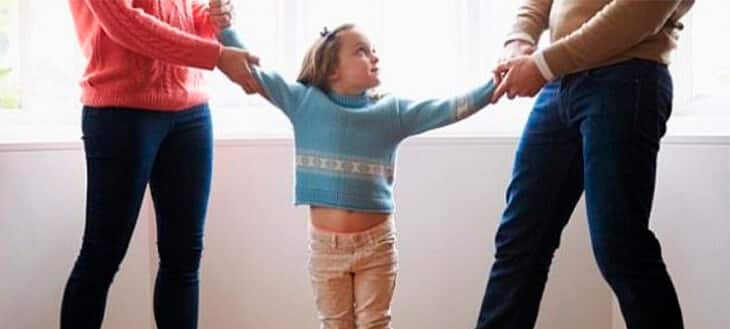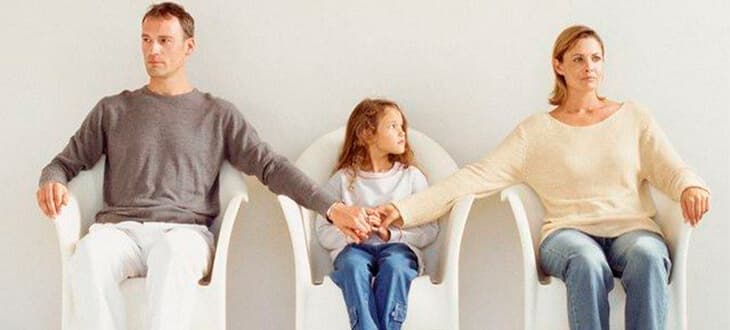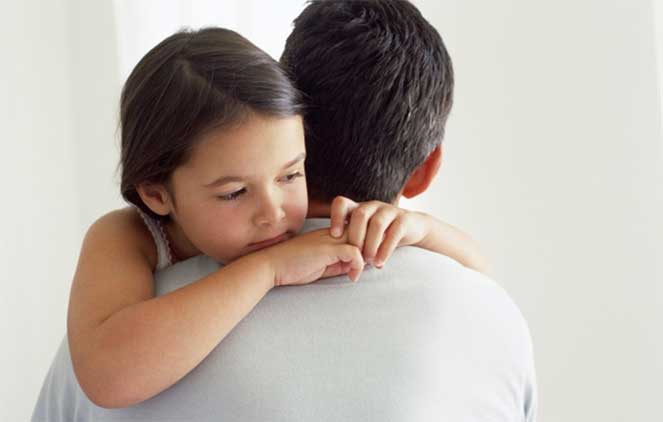What is guardianship
To find out what child custody is, you need to refer to Art. 2 of the Federal Law of April 24, 2008 No. 48 “On guardianship and trusteeship.” According to it, guardianship is considered a form of family arrangement for a minor, in which persons appointed by the competent authorities - guardians - become the legal representatives of the child, performing all legally significant actions on his behalf. According to Art. 145 of the Family Code of the Russian Federation, guardianship is formalized for the purpose of raising, maintaining and educating a child left without parental care. In this case, guardianship is appointed only for children under 14 years of age - after this age only guardianship is possible.
The guardian and the ward are appointed by their consent and taking into account their opinion. If brothers or sisters are left without parental care, the law excludes their separate transfer to different persons, except in cases where their interests require it. Guardianship is established by an act of the guardianship authorities. At the same time, the law allows for the possibility of both gratuitous and paid guardianship.
In the latter case, it is possible in the form of a foster family or foster care.
Manage the client's money
Joint custody implies the absence of prohibitions and restrictions on any forms of participation in the child’s life. Each parent has the unlimited right to attend an educational institution or preschool, pick up a child from kindergarten or school, and ensure free communication with all relatives. Therefore, the answer to the question of whether it is possible to obtain guardianship over the mother depends on whether she has a mental disorder, as well as the presence of a court decision declaring her incompetent. In case of limitation of legal capacity, only the establishment of guardianship is allowed, which provides for limited powers of the guardian.
At the request of one of the parents or other participants in the process, as well as on its own initiative, the court may, if necessary, order a psychological-pedagogical or comprehensive medical-psychological-pedagogical examination to resolve issues that require special knowledge.
As for communication with the child, during a divorce you can include in the claim a requirement to determine the procedure for communication with the child and attach the desired schedule. But here again the court will decide, taking into account the opinion of the guardianship. And you still need to justify your schedule, why it is this way and not otherwise.
They received a pension, together with their children, in the event of the loss of a breadwinner (PSPK), with the permission of the guardianship and trusteeship authorities of the city of Tyumen, issued for a year, in Tyumen itself, although they were registered in another city. This year, they refused to accept documents, citing the need to go to the place of registration for permission.
Voluntarily accepted obligations are more likely to be fulfilled voluntarily by both parties.
Teenager with father. There are often cases when a judge decides to leave a minor with his father. Typically, this practice works for teenagers aged 10 years and older. The mother also has the right to see and raise the child according to the procedure established by the government agency.
If the child is under 14 years old or the citizen is declared completely incompetent, the court may, at its discretion, involve them in the consideration of the case.
Legislation
The basis of the legislation that regulates guardianship and trusteeship of children and minors is, of course, the Civil Code of the Russian Federation. He, in particular, the provisions of Art. Art. 31-40, defines the general conditions for establishing guardianship, the subjects over whom guardianship can be formalized, fixes the functions of the guardian and the powers of the guardianship authorities, the rights and obligations of the subjects, as well as the procedure for terminating guardianship.
An equally significant place in the system of regulatory legal acts is occupied by the Family Code of the Russian Federation, where an entire Chapter 20 is devoted to guardianship of minors. It contains requirements for persons wishing to take on guardianship functions, and also clarifies the rights and obligations of the parties.
The central place in this system is also occupied by the Federal Law of April 24, 2008 No. 48 “On Guardianship and Trusteeship”, which specifies the powers of the guardianship authorities, clarifies the legal status of guardians and the rules for registering guardianship, establishes the legal regime of the property of the ward, the responsibility of persons acting guardianship functions, as well as rules for terminating guardianship.
One should not lose sight of the Decree of the Government of the Russian Federation of May 18, 2009 No. 423, concerning certain issues of child guardianship. The document, in particular, approved the “Rules for selecting candidates for guardianship,” “Rules for checking the living conditions of the guardian and subsequent verification of compliance with guardianship duties,” as well as the form of the guardian’s financial reporting.
When is guardianship possible?
In essence, Art. 145 of the RF IC determines the only basis for registering guardianship of a minor - this is the child’s status as a person left without parental care. This may happen in a variety of cases, including when parents:
- deprived of parental rights or died;
- abandoned the child at birth or does not provide him with proper care and education;
- declared missing or incompetent;
- are temporarily unable to raise their children and have themselves asked to establish guardianship over them;
- have not reached the age of sixteen and are not married - in this case, the child’s grandparents are the guardians.
Regardless of the grounds for registering guardianship, the final decision is made by the guardianship authority. It is he who selects citizens, studies their everyday life, their living conditions, the relationship between the child and the potential guardian, financial and housing opportunities, and also clarifies other issues. Based on the information studied, a decision is made.
What it is
The RF IC does not contain the legal concept of “joint guardianship”, since the guardianship regime arises only in the absence of biological parents in a child (death, deprivation of rights, abandonment of children, etc.). Therefore, if a child has both parents who decided to separate and stop living together, guardianship implies the following conditions of upbringing:
- the mother and father determine not only the place of permanent residence after the divorce, but also agree in advance on the procedure for the exercise of rights by both parents - active participation in the child’s life, going on vacation with the mother and father, etc.;
- joint decision-making about all aspects of a child’s life - choosing a place of study and medical services, equal participation in the formation of moral and physical development, etc.;
- removal of any prohibitions and restrictions on the child’s communication with both parents - he can live alternately with his mother or father, subject to the requirements for normal living conditions.
According to the rules of the RF IC, the official termination of family relations must go through the court if there is at least one minor child in the family. In this case, the task of the court is to respect the interests of the child in decent living conditions, upbringing and education - for this it is necessary to determine the child’s place of residence after the divorce, as well as the procedure for exercising parental rights and responsibilities.
Who can become a child's guardian
To find out who can take custody of a child, you need to refer to Art. 146 RF IC. According to it, persons performing guardianship functions can only be adult, capable citizens who have the necessary financial capabilities and living conditions. In addition, the law prohibits the appointment of guardians by persons who:
- were deprived of parental or guardianship rights;
- have been convicted or prosecuted for crimes against life and health, freedom, honor and dignity, sexual integrity of persons, as well as for other grave and especially grave criminal offenses;
- have not undergone psychological, pedagogical and legal training, with the exception of relatives of the ward and subjects who are already guardians;
- are in a same-sex marriage and such marriage is recognized by the state of which they are citizens;
- are not married, but are citizens of a country that recognizes same-sex marriage;
- chronically suffer from alcohol or drug addiction;
- chronically suffer from diseases included in the list approved by Decree of the Government of the Russian Federation No. 117 of February 14, 2013.
At the same time, the law does not establish an upper age limit for a guardian of a child in Russia - the main thing is that the candidate has reached the age of majority and does not have the restrictions specified above.
When appointing a guardian, the moral qualities and personal views of the candidate, the relationship between the potential guardian and his ward, the wishes of the child, as well as the attitude towards the situation that arose in the future adoptive family should be taken into account.
It is worth noting that, according to Part 5 of Art. 10 Federal Law No. 48 dated April 24, 2008, close relatives of children have priority rights to obtain guardianship.
Responsibilities of a child's guardian
According to Art. 15 Federal Law No. 48 dated April 24, 2008, the guardian of an individual is his legal representative. Thus, the legislator requires the guardian to fully and comprehensively protect the rights and interests of the ward, which includes:
- representation of the interests of the ward in relations with any entities without any special powers;
- living together with the ward;
- care for its maintenance, provision of necessary care, treatment and medications;
- care for the physical, mental, spiritual and moral development of the ward;
- care for the upbringing and education of the ward;
- notification to the competent authorities of a change of residence;
- conscientious management, protection and disposal of the property of the ward.
The conditions of child guardianship established by Art. 36 of the Civil Code of the Russian Federation, require the guardian to perform his functions taking into account the opinion of the ward. In this case, the guardian can independently choose the methods of upbringing and educational institutions and has the right to assistance in obtaining medical, legal, social or other assistance he needs.
We recommend that you familiarize yourself with the rights and responsibilities of a guardian in more detail.
The role of guardianship authorities. What does guardianship check in an apartment during a divorce?
The issue of general care for minor children is most often resolved with the involvement of guardianship authorities. They help identify the relevant factors that need to be taken into account when reaching a verdict in order to best serve the child's best interests.
Representatives of the guardianship institution go to the place of residence in order to check living conditions and establish the moral and psychological climate.
Pay attention to the following main aspects:
- the presence of a sleeping place, a separate room or corner for placing the personal belongings of a minor;
- availability of food, hygiene items, clothing, furniture;
- provision of the child with toys, developmental tools, office supplies and other equipment necessary for learning and physical development.
Based on the findings of the social audit and the opinions of experts, the court decides whether to interrogate the minor and how to divide custody of the child in the event of a divorce.

Procedure for registering guardianship
The procedure for registering guardianship of a child is determined by the provisions of Art. 145 of the RF IC, the provisions of Art. Art. 10-11 Federal Law No. 48 dated 24.04.2008, as well as the “Rules for the selection, recording and training of potential guardians”, approved by Decree of the Government of the Russian Federation dated 05.18.2009 No. 423. Based on the norms contained in the documents, a person who has expressed a desire to take on guardianship functions, you need:
- Contact the competent authorities and find out what is needed to obtain guardianship of a child.
- Collect the necessary documents and apply for guardianship.
- Complete a survey of living conditions.
- Receive a certificate of inspection of housing and living conditions.
- Obtain an opinion on the possibility of being a guardian.
- Select a child using a federal data bank (in case of receiving a conclusion on the possibility of being a guardian if guardianship is being issued in relation to an unfamiliar minor).
- Arrange for guardianship of the child.
Let's look at the most significant points in more detail.
Where to apply
To find out where to register guardianship, you must refer to clause 2 of the “Rules for the selection, registration and training of guardians”, approved by Decree of the Government of the Russian Federation of May 18, 2009 No. 423. According to it, these functions are assigned to the guardianship authorities.
The selection and training of guardians can be carried out by educational, medical and social organizations that are vested with the powers of guardianship authorities, but only the latter have the right to make the final decision.
Before becoming a guardian of a child, you must submit an application to the guardianship authorities at your place of residence, the form of which is not established by law. This means that the law allows for the submission of an application in free form, but it is much more correct to ask for a sample from the guardianship authorities. In addition to the application, the candidate to perform guardianship functions must submit a package of documents established by law.
Package of documents
To find out what documents are needed to obtain child custody in 2021, we recommend that you refer to clause 4 of the above Rules. According to it, along with an application, a citizen who wishes to become a guardian submits to the guardianship authorities at his place of residence:

- a certificate from the place of employment indicating the salary and position held;
- an extract from the house register or other confirmation of the use of the residential premises indicating the personal account;
- a police certificate confirming no criminal record;
- a medical report issued in the manner established by order of the Ministry of Health dated June 18, 2014 No. 290n.;
- a copy of the marriage certificate if there is one;
- written consent of adult family members living with the candidate, reflecting the opinion of everyone who has reached 10 years of age;
- autobiography;
- a document confirming completion of special training;
- a copy of the pension certificate (for pensioners).
The specified list of documents for registration of guardianship and trusteeship of a child in Russia is exhaustive. It can be submitted by the candidate in person, through the Public Services Portal, the official Internet representation of a specific guardianship authority, as well as the territorial MFC.
All documents requested at the request of the guardianship authorities are accepted within a year from the date of issue, with the exception of a medical report, which is accepted only within six months.
Timing and result of consideration
According to paragraph 8 of the above Rules, within 3 days after submitting documents, guardianship authorities are required to conduct an examination of the living conditions of the person who wishes to formalize voluntary guardianship. Its results are drawn up in the form of a report within 3 days from the date of conduct, after which, also within 3 days, they are sent to the candidate. Based on this act and taking into account the documents submitted by the guardian, within 10 days from the moment they are submitted, the guardianship authority is obliged to make a final decision, which either assigns guardianship functions (determines the possibility of being a guardian) to the candidate or denies them. The said decision is formalized in an act.
Thus, making a final decision will not take more than 10 days from the date of submission of documents. It will take much more time to select a child and get to know him.
How to achieve the right to participate in the life of a child living with a former spouse?
The best solution would be a peaceful agreement on raising children. If the spouses have managed to agree on how they will raise the child after the divorce, then they need to draw up an agreement. They can indicate in the agreement the period during which the child will live with the mother, and then with the father, and draw up a schedule.
The drawn up agreement, together with the statement of claim, is submitted to the magistrate's court. If the parents' agreement does not conflict with the interests of the minor, the judge will make a decision in accordance with the agreement. A child who is already 10 years old has the right to vote.
There are cases when one of the parents, for example a mother, is against joint custody - the ex-wife does not allow the children to see their father. In this case, the man must file a claim in the district court. For this you need the following documents:
- passport;
- birth certificate of a minor;
- certificate of marriage and divorce;
- act of inspection of housing conditions;
- certificate of health of the minor;
- income certificate.
If the mother cannot prove that communication with the father negatively affects the health and mental state of the child, then the court will assign him a certain time to meet with the father. Refusal to comply with a court order is a serious violation.
Repeated bans on seeing your child may lead to the initiation of legal proceedings to transfer the minor to the custody of his father.

Divorce as a consequence of marital misunderstanding and unwillingness to be in the same place often leads to the need to determine with whom the child will live and what rights remain with each of the parents. In order not to deprive joint children of the attention and care of one of the parents, joint custody of the child is used after a divorce.
This is a productive European practice that has actively entered into Russian family legal relations.
- The concept and ways of establishing joint custody of a child
- Who and how determines who is the guardian of a child after a divorce?
- Settlement agreement
- Judicial Arbitration
- What documents need to be collected
- The role of guardianship authorities. What does guardianship check in an apartment during a divorce?
- Advantages and disadvantages of joint custody
- Factors influencing judicial decision-making
- If the child has his own preferences
- The role of the mother
Guardianship of a child from an orphanage
Children from specialized educational institutions for orphans make up the majority of minors left without parental care. However, the law does not provide for any special conditions for guardianship of a child from an orphanage: guardianship over them is formalized on a general basis and according to general rules. However, given that the child is in an orphanage, the potential guardian also needs to go through the procedure of selecting a child. It, according to clause 10 of the above Rules, includes:
- Registration of a citizen as a candidate within 3 days from the date of signing the act on the possibility of being a guardian.
- Obtaining information about children who are entitled to guardianship.
- Receiving a referral to visit the selected child at his place of residence.
- Getting to know the child and establishing contact with him.
- Familiarization with the minor’s documents included in his personal file.
- Written confirmation of familiarization with the medical report.
- Registration of guardianship.
Find out more about how to become a guardian for a child from an orphanage.
Take custody of a child or adult
At the end of the trial, one of the spouses signed custody documents, and the second was deprived of all rights to the baby. Thus, the child was deprived of one of his parents, which negatively affected his mental health. We have prepared answers to questions on the topic: “Divorce and joint custody of a child” with comments from experts. You can check the data for 2021 with the duty consultant.
However, if the parents are already divorced, one of them has the right to file a claim with the courts to formalize this agreement.
The child remains with the father. The judge must take into account the opinion of the child (if he is over ten years old). In some situations, the baby is closer to the father, and he wants to stay with him.
If the father and mother have disagreements about determining the place of future residence of the child and ways of communicating with him, the dispute will be resolved in the courts.
Guardianship with living parents
Guardianship of a child is not always formalized in the event of the death of biological parents. Guardianship is quite often issued for so-called social orphans who have lost or are at risk of losing parental care while their parents are alive. This is possible in cases where the blood parents:
- deprived of parental rights in court;
- suffer from mental disorders, as a result of which they are declared incompetent;
- suffer from other chronic diseases that interfere with the normal upbringing of the child;
- have withdrawn themselves from parental responsibilities and are not raising a child without good reason for a long time;
- cannot fulfill parental responsibilities for valid reasons, for example, while on a long business trip, and so on.
Moreover, according to Art. 13 Federal Law No. 48 dated April 24, 2008, parents have the right to independently submit an application for the appointment of a temporary guardian for their child if required by valid reasons. We recommend that you familiarize yourself in more detail with the procedure for obtaining guardianship of a child with living parents.
Joint custody by agreement
Note! The term joint custody is a new trend in Russian judicial practice. Therefore, it is often almost impossible to obtain the right to physical custody through the court.
My husband and I have joint custody according to the court. He has every other weekend from Friday to Sunday and half of the holidays.
Supporting documents are attached to the report: receipts, checks. Expenses for food, basic necessities and small household needs do not need to be confirmed; they have no right to demand such confirmation.
It often happens that a newly married couple finds out that they cannot have children for some serious health reasons. What to do in this case when there is no available alternative?
Guardians and trustees do not need a power of attorney to confirm authority, only an instrument of appointment.
In fact, these are completely different things. A guardian is a person who has taken on the responsibility of raising a minor who is left without parental care. And joint custody allows both parents to fully raise their child.
Registration of guardianship by grandparents
Registration of guardianship powers for a grandmother or grandfather is a very common situation in cases when their children, the child’s parents, are deprived of parental rights or they die. In this case, registration of guardianship is carried out according to the standard scheme indicated above - by submitting an application and a package of necessary documents to the guardianship council and their subsequent consideration.
The only thing that distinguishes the procedure for registering guardianship powers for a grandmother or grandfather is that, according to Part 5 of Art. 10 Federal Law No. 48 dated April 24, 2008, they, as close relatives of the child, are given priority right to obtain guardianship over him over other entities.

Can single people get custody of children?
To find out whether a single woman can obtain guardianship, you first need to refer to Part 6 of Art. 10 Federal Law No. 48 dated April 24, 2008, according to which, as a general rule, only one guardian is appointed to a Russian citizen. Thus, the law not only does not exclude, but even, on the contrary, provides for the possibility for a single woman or man to be a guardian.
The marital status of the candidate plays absolutely no role at all, except in cases where single foreigners wish to obtain guardianship. In particular, the absence of a spouse will become an obstacle in cases where a single citizen of a country where same-sex unions are recognized as official marriages has expressed a desire to obtain guardianship.
In other cases, marital status does not matter. A much more important factor is the candidate’s compliance with the requirements of Art. 146 of the RF IC and other requirements of the law.
Types and features of joint custody after divorce
Expert opinion
Stepanov Sergey Pavlovich
Practitioner lawyer with 6 years of experience. Specializes in family law. Knows everything about the law.
Raising a minor through joint efforts, even after a divorce, allows you to preserve the child’s psyche and give the child the opportunity not to notice changes. In general, there are two types of joint custody:
- Legal. A minor lives with one of the parents, and the other makes an active contribution to his upbringing and maintenance. All important decisions are made based on the opinions of both parties. In some cases, a child may temporarily live with the other parent.
- Physical. The minor lives alternately with each parent and spends equal time with them. However, according to psychologists, this type of guardianship has a harmful effect, since you have to regularly change your place of residence.
The benefits of co-parenting a child
Experts note the following advantages of this method of raising a child after the parents’ divorce:
- absence of psychological trauma associated with the cessation of constant communication with one of the parents;
- the opportunity for both spouses to fully participate in the upbringing and maintenance of their common child;
- if the child is over 10 years old, he will not have to make a painful choice in favor of one of the parents in court;
- the child does not feel abandoned and lonely;
- Parents have the opportunity to provide their child with adequate care and education.
In other words, raising a minor in this way is an excellent compromise to avoid psychological trauma for the child after a divorce.
Payments to guardians
Before registering a child with a foster family, future adoptive parents are in a hurry to find out what guardianship provides and what financial benefits it will bring. The state provides broad support to foster families, so payments related to child custody may include:
- One-time payments. We are talking about one-time compensation established by Federal Law No. 81 of May 19, 1995 “On state benefits for citizens with children.” Its size is subject to annual indexation. For example, from February 2021, the amount of such benefit is 18,004 rubles.
- Monthly allowance. In addition, the guardian who has taken custody of the child may qualify for a monthly child support allowance. The amount of payments is determined by regional legislation and differs depending on the subject of the federation. For example, in the capital, guardians receive 16.5 thousand rubles for a child under 12 years old, and 22 thousand rubles for children over 12 years old. If there are three or more children in the family: 19,800 rubles - up to 12 years of age and 25,300 rubles. for every senior. For a disabled child, the benefit is 27,500 rubles. In addition, in Moscow, the guardian (trustee) is paid 928 rubles to reimburse the costs of paying for housing and communal services and for using a telephone in the premises in which the ward actually lives.
- Guardian's remuneration. According to Art. 16 Federal Law No. 48 dated 04.2008, a person can perform his guardianship functions under an agreement that may provide for remuneration to the guardian. The agreement also determines the amount of such remuneration and sources of financing.
Read more about payments to guardians and trustees.
Termination of guardianship
To find out how you can deprive guardianship, we recommend that you refer to Art. 36 Civil Code of the Russian Federation. According to it, guardianship ends as a result of the release or removal of the guardian from his duties. Regardless of the grounds, deprivation or release from guardianship is permitted only by the guardianship council. Thus, the guardianship authority may deprive a guardian of his powers in the following cases:
- improper performance of guardianship functions;
- violations of the rights and interests of the ward, including as a result of the guilty actions of the guardian;
- identifying facts of violation of the requirements of the law on the protection and management of the ward’s property.
If one of these factors is identified, the guardianship authorities are obliged to conduct an inspection, and if confirmed, they must deprive the person of guardianship. Such a decision is formalized by an act of the guardianship authority, from the moment of which the guardian is considered removed. By the way, he can be relieved of his powers at his own request.
Read more about waiving guardianship.
Joint custody of a child after divorce
While living, for example, with the father, the child can see and communicate with the mother and vice versa. The agreement specifically stipulates this possibility.
You should know that the advantage of one of the parents in material and living terms is not in itself an unconditional motive for satisfying his demands, and other circumstances characterizing the situation that has developed in the places where the mother and father live can outweigh the material and living argument.
The cases in which such permits are issued and when they are not vary from authority to authority, so it is better to find out in advance what practice has developed in your place of residence.
The Internet portal of the "Rossiyskaya Gazeta" (16+) was registered with Roskomnadzor on June 21, 2012. Certificate number EL No. FS 77 - 50379.







